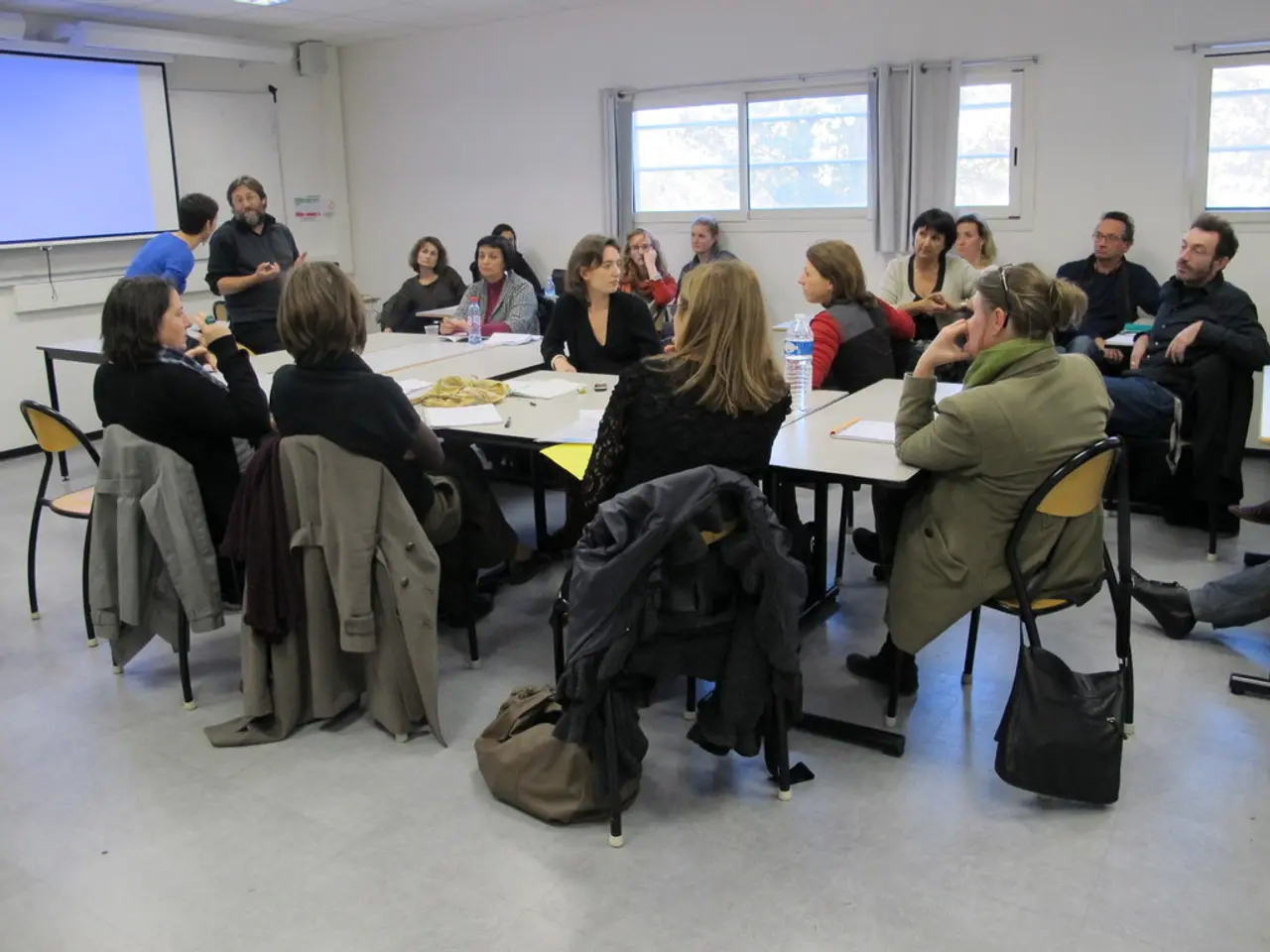Quick Guide: Settling Disagreements with Your Partner in Twenty Minutes
In the realm of relationships, conflicts are an inevitable part of the journey. However, they don't have to lead to escalation or bitterness. Here are some strategies to help resolve conflicts and promote a healthier relationship.
Firstly, self-care plays a significant role in managing stress during conflicts. Practicing self-soothing techniques, such as deep breathing exercises or mindfulness meditation, can help reduce stress and promote relaxation during breaks.
Resolving conflicts is an accomplishment that should be celebrated. Moving forward as a team involves maintaining healthy communication and actively working on the relationship. Forgiveness is essential for this process, as holding onto grudges or resentment only perpetuates the cycle of conflict.
Seeking professional help can provide guidance and support in navigating conflicts and improving communication. Therapists and counselors, such as systemic family and couple therapists, offer tailored approaches to help clients develop their own solutions through communication and self-reflection. Couple therapists and mediators provide structured approaches to understand and resolve conflicts, often working in collaboration with family counseling centres.
Setting boundaries is crucial in preventing conflicts from escalating. This includes not yelling or name-calling during arguments, taking breaks when emotions are running high, and seeking professional help if conflicts become too difficult to resolve on one's own.
Apologizing shows humility and a willingness to take responsibility for one's actions. It allows for the acknowledgement of the hurt caused to one's partner. When apologizing, it is important to be sincere and specific about what one is apologizing for, avoiding excuses or shifting blame.
Taking breaks during heated arguments can help both partners calm down and regain composure. This pause can lead to a more productive and constructive conversation.
In Germany, specialized practices include cognitive behavioral therapy for adults addressing psychological issues that may underlie relationship conflicts, as well as mediation services that facilitate neutral conflict analysis and resolution especially useful in severe crises or divorce situations.
Remember, resolving conflicts is a process, and it requires patience, understanding, and a willingness to grow. By implementing these strategies, you can foster a healthier and more harmonious relationship.
Read also:
- Peptide YY (PYY): Exploring its Role in Appetite Suppression, Intestinal Health, and Cognitive Links
- Toddler Health: Rotavirus Signs, Origins, and Potential Complications
- Digestive issues and heart discomfort: Root causes and associated health conditions
- House Infernos: Deadly Hazards Surpassing the Flames







